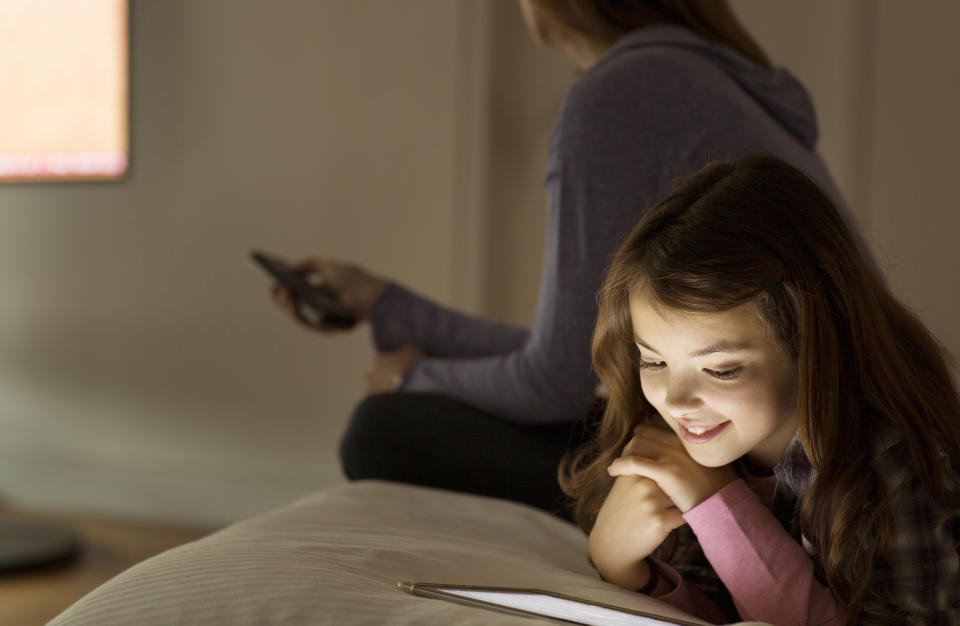Study raises concerns over how much screen time is good for children
![Screen time should be limited to two hours, say researchers [Photo: Getty]](https://s.yimg.com/ny/api/res/1.2/r3pIk08Wx4_g.3oc_ft8AA--/YXBwaWQ9aGlnaGxhbmRlcjt3PTEyNDI7aD04MjU-/https://media.zenfs.com/en/homerun/feed_manager_auto_publish_494/724c3dd2ad6bbed1e51701e1d04a0065)
Parents are all too familiar with the battle to get their children to stop playing video games or watching television to play outside instead. Now, new research has proven that more than two hours of recreational screen time a day could seriously affect a child’s learning.
A new study published by Lancet Child and Adolescent Health, examined 4,500 US children aged between eight and 11 to determine how screen time affects their cognitive development.
Participants’ parents were questioned on their kids’ daily habits from the amount of physical activity they participate in to the number of hours spent sleeping.
The children were later asked to complete a cognition test where they were assessed on their memory, attention, language abilities and processing speed.
Findings indicated that children who have less than two hours of screen time a day, an average of nine to 11 hours of sleep and who do at least one hour of physical activity per day – did 5% better than the average child in the tests.

It’s interesting to note that even children who do not regularly exercise or achieve the recommended amount of sleep but kept their screen time down to a maximum of two hours, still performed 4% better than average.
Overall, findings indicated that US children enjoy an average of 3.6 hours of screen time a day while just over half meet the recommended amount of sleep.
However, it has not yet been proven whether or not poor cognitive development is down to online activity itself or the time spent using electronic devices instead of exercising or sleeping.
Dr Jeremy Walsh from the CHEO Research Institute concluded: “More research into the links between screen time and cognition is now needed, including studying the effect of different types of screen time, whether content is educational or entertainment, and whether it requires focus or involves multitasking.”
In a linked comment, Dr Eduardo Esteban Bustamante from the University of Illinois, said findings could be due to lack of sleep or time spent participating in challenging learning activities.
“Each minute spent on screens necessarily displaces a minute from sleep or cognitively challenging activities,” he said. “It is tempting to take solace in findings that cognitively challenging screen activities can benefit cognition but, if given a choice, most children already consistently and predictably choose more stimulating screen activities over less stimulating ones.”
Follow us on Instagram and Facebook for non-stop inspiration delivered fresh to your feed, every day. For Twitter updates, follow @YahooStyleUK.
Read more from Yahoo Style UK:
M&S launches high street’s first kidswear range for children with disabilities
Holly Willoughby faces backlash after quitting lifestyle brand to spend more time with family
Nanny who charges £100 to get kids to go to sleep shares her tips


